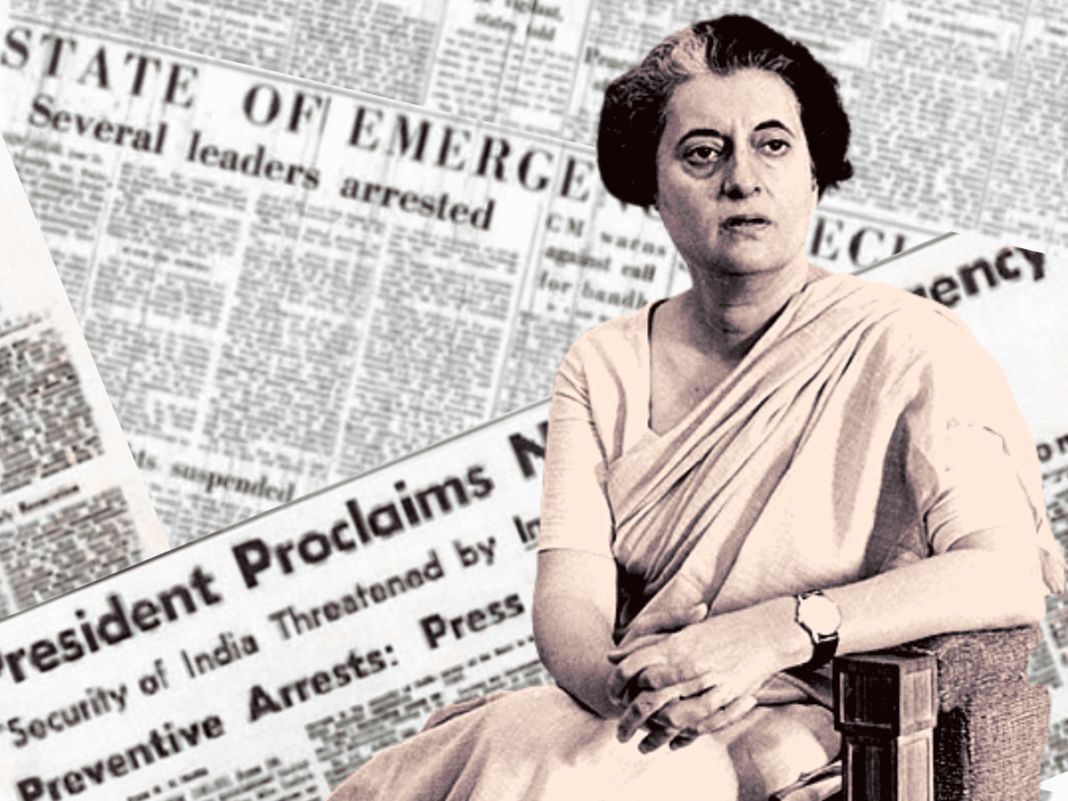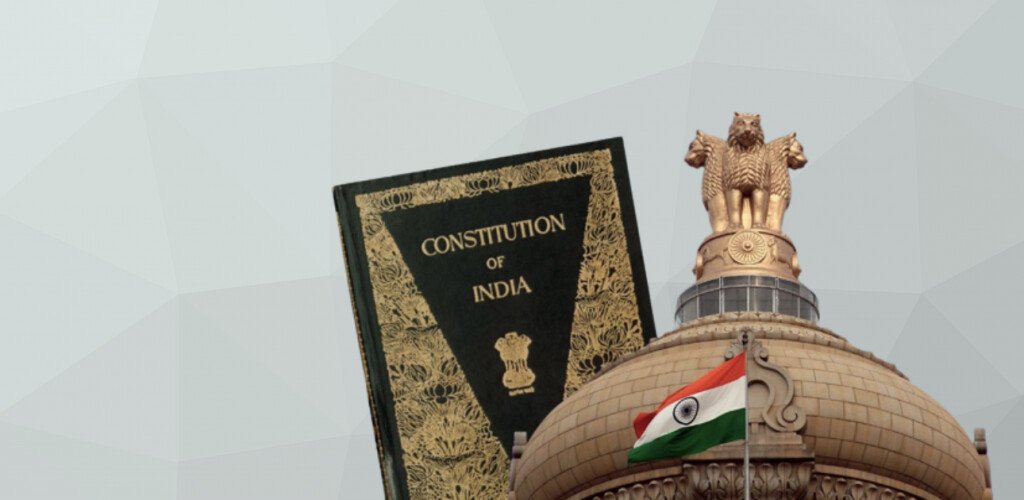By: Ashok Singhal
47 YEARS back on this day, the Constitution that our founding fathers of India had bestowed to the nation and its letter and spirit were irrevocably shaken.when the then Prime Minister Indira Gandhi decided to suspend civil liberties, the cornerstone of any democratic republic, and impose an Emergency in the country, unable to digest the decision of Justice Jagmohanlal Sinha of Allahabad High Court of her disqualification decision barring her from voting in Parliament.
This singular moment in Indian history is a reminder to all of us that the cherished values of our cultural ethos and civilization must be preserved at all costs no matter what. This means even at the cost of one’s own lives as crores across the nation did in an act of solidarity, an example rare in human history. This was also a signal to the people of the country that the Congress Party, which had taken pride in its role in the Indian independence, but now effectively Indira Congress, could stoop to any level to enjoy untrammelled power and when challenged would not hesitate to strike back at its own people.
I was merely 8 years, have personal memories to narrate, my father Late Paramananda Singhal was Bharatiya Jana Sangha leader and was part of underground activity and for this our house was under constant watch. He was arrested on 30-11-76 and was put up in Guwahati Central Jail. He was tortured to reveal information on activities & hide out of activist of Lok Sangrash Samiti.
I remember commotion in our house from time to time during those crucial 18-months. I still remember my mother Indumati Singhal, my younger sister Manju and myself could not visit him in jail for hundred days after 100 days we were allowed to meet him for 15 minutes.
Later, leaders and workers use to come at wee hours to meet each other, food packets were made to give activists for use during travel or inhide out. Cyclostyle was done in mid night under candle light to avoid attention. The house was pick up center of Publicity Material.
When I matured and was narrated to what my own family went through, I could only admire the steely resolve of my family and relatives to stand for their rights and those of their countrymen, like many of my present-day heroes. However, subsequent development in the country at a time when “dissent meant sedition” propelled my political understanding. I could see how democratic institutions must have been undermined in the true sense of the term.
Political leaders, elected representatives, journalists of all hues, and anyone with the remote possibility of a connection to the RSS and Jana Sangh, the organization that was the progenitor of the Bhartiya Janata Party of today, were picked up, and put behind the bars of already overcrowded jails. Laws were brought from nowhere into effect and used on opponents of the Prime Minister or the Congress Party. The irony of all it was that the then Prime Minister went about town defending her move in the name of democracy and challenge to it! While acknowledging that this was a ‘bitter pill’, she defended her autocratic decision in the name of nation building. A nation that was slowly building a democratic ethos for the world to see was being razed in the eyes of freedom fighters and patriots. The question in the minds of most was: “Is it the day for which we had sacrificed so much?”
My subsequent readings of the bleak times still haunt me. I shudder to think that the Indian Republic, which was merely 25 years old, could be so easily taken in by one family or party as its proprietary rights. Was this the real meaning of freedom for which the people of this country had sacrificed their everything?
As events unfolded through protests, and newspapers, and even whispers reality started surfacing. It was a reality which was stranger than fiction. Brutality in all forms became the order of the day, and many precious lives were sacrificed at the altar of power. The Legislature, the Judiciary, the Executive and the fourth pillar of democracy, the media, were all subjugated by coercion or greed, which took our institution to a fresh low. Worst of all, even the Parliament was compromised. Bills anathema to a functioning democracy was passed with impunity since most opposition MPs were behind the bars. People in States were barred from exercising their franchise through President’s rule and defections were engineered to topple elected ones. Sycophancy rose to gargantuan heights, and rationality had few takers. It was almost that the British Raj was back in the country with even more vengeance. I am now surprised to even hear that a party whose history is soaked in blood for murder of democracy talks about democratic institutions.
However, amid these bleak times, there arose voices of the teeming masses. Slowly but surely. Those who had taken the Congress Party to be the representation of their rights realized how mistaken they were. Leaders with characters started to emerge. Newspaper editors and journalists became the flag bearers of free will and democracy, though there were exceptions as well. Like minded Indians with the interest of the nation at heart were hitting the streets at the cost of personal comfort. They were joined by free thinking humanist all over the world in an unprecedented act of solidarity. Friends and admirers of India from all corners started using their influence to limit the damage. It was the worst of times, and yet it was the best of times for a new politics to take charge. A nation that was in its nascent stage of democracy was learning at a great cost the perils of blind worship. Finally, the Indira and Congress spell was broken, and so signaled the dawn of a new polity in India.
In his latest Maan Ki Baat, Prime Minister Narendra Modi, before flying to the United States, reminded us starkly of those days. While recalling the sacrifices of millions, he urged the nation not to forget those days. Here was an elected Prime Minister who had no compunction in revolting against the very ethos of Indianness, and the legacy of our founding fathers, and millions of freedom fighters and holding warmly but tightly the steely hands of fascism for one-and-a-half years.
We the family members of Lok Tantra Senanis are thankful to Chief Minister of Assam Himanta Biswa Sarma for felicitation and recognitions of those who fought to save democracy during Black days. Today a function has been organized at Srimanta Sankerdev Kalakhetra on this occasion.
As we look back on those years, it is my fervent appeal to the people of Assam and specifically to all those who personally suffered at the hands of a brutal regime and their family members to cling on to democracy and freedom as their guiding light as our nation marches on in this Amrit Kaal. (The author is a Minister, Govt. of Assam)







